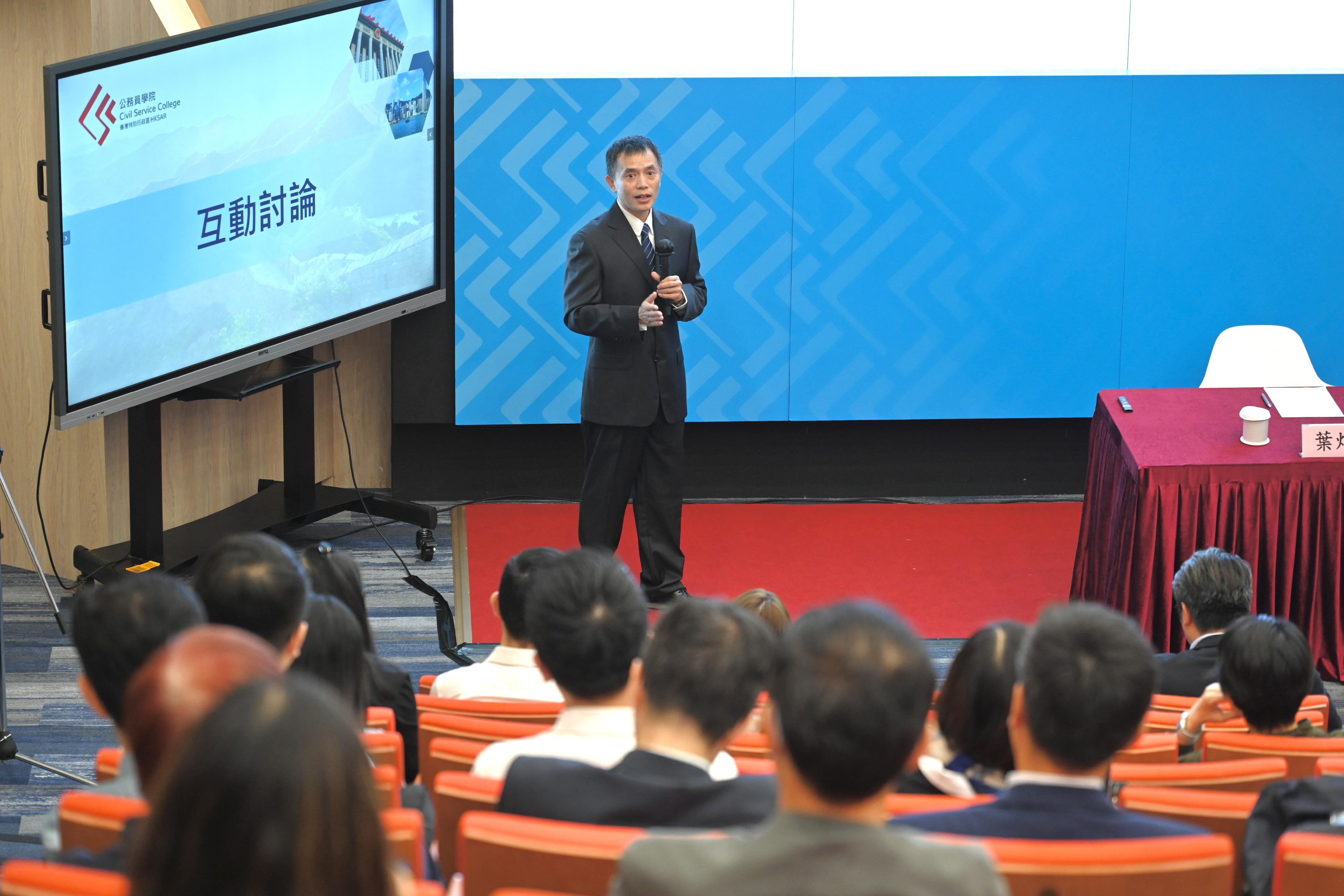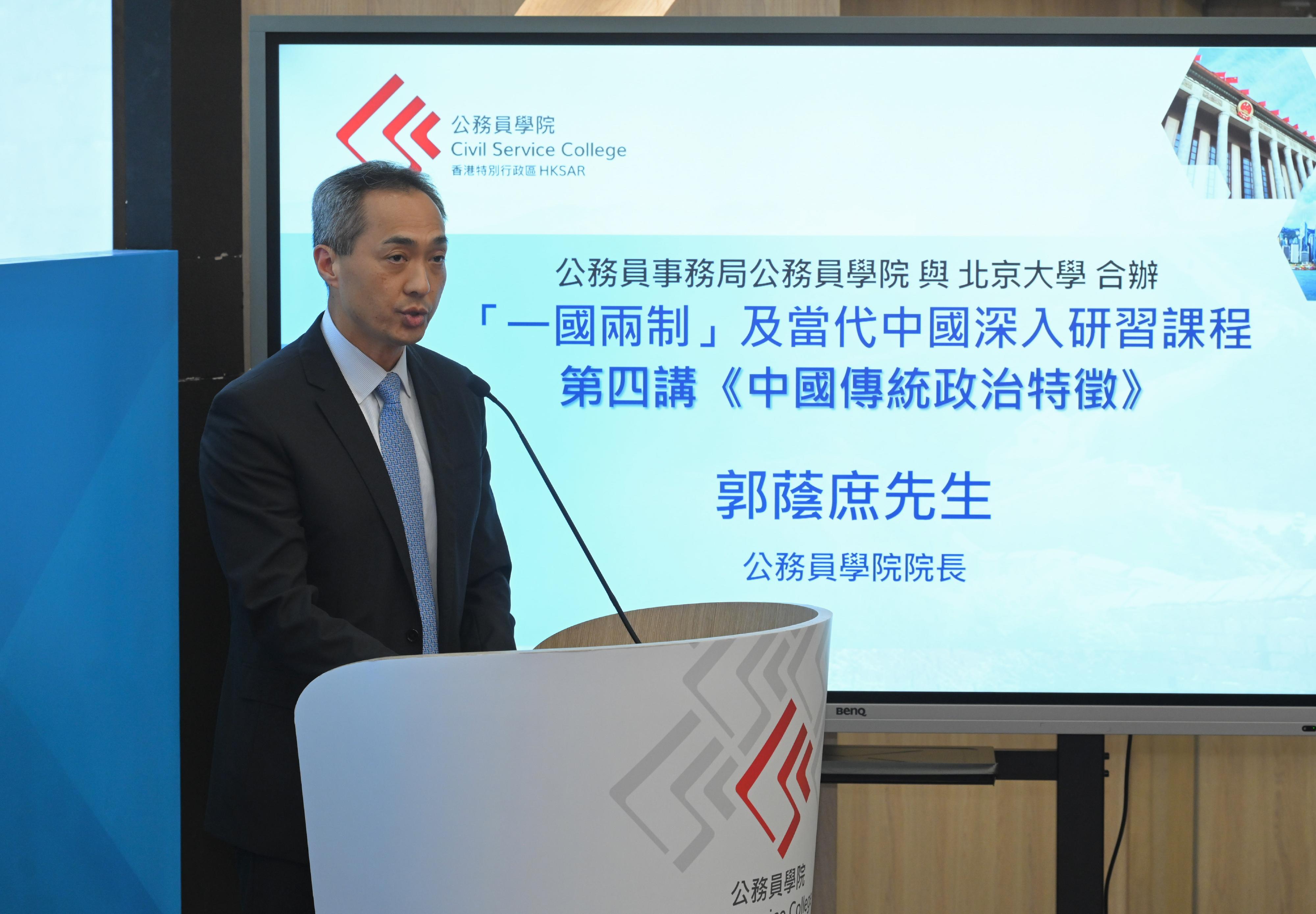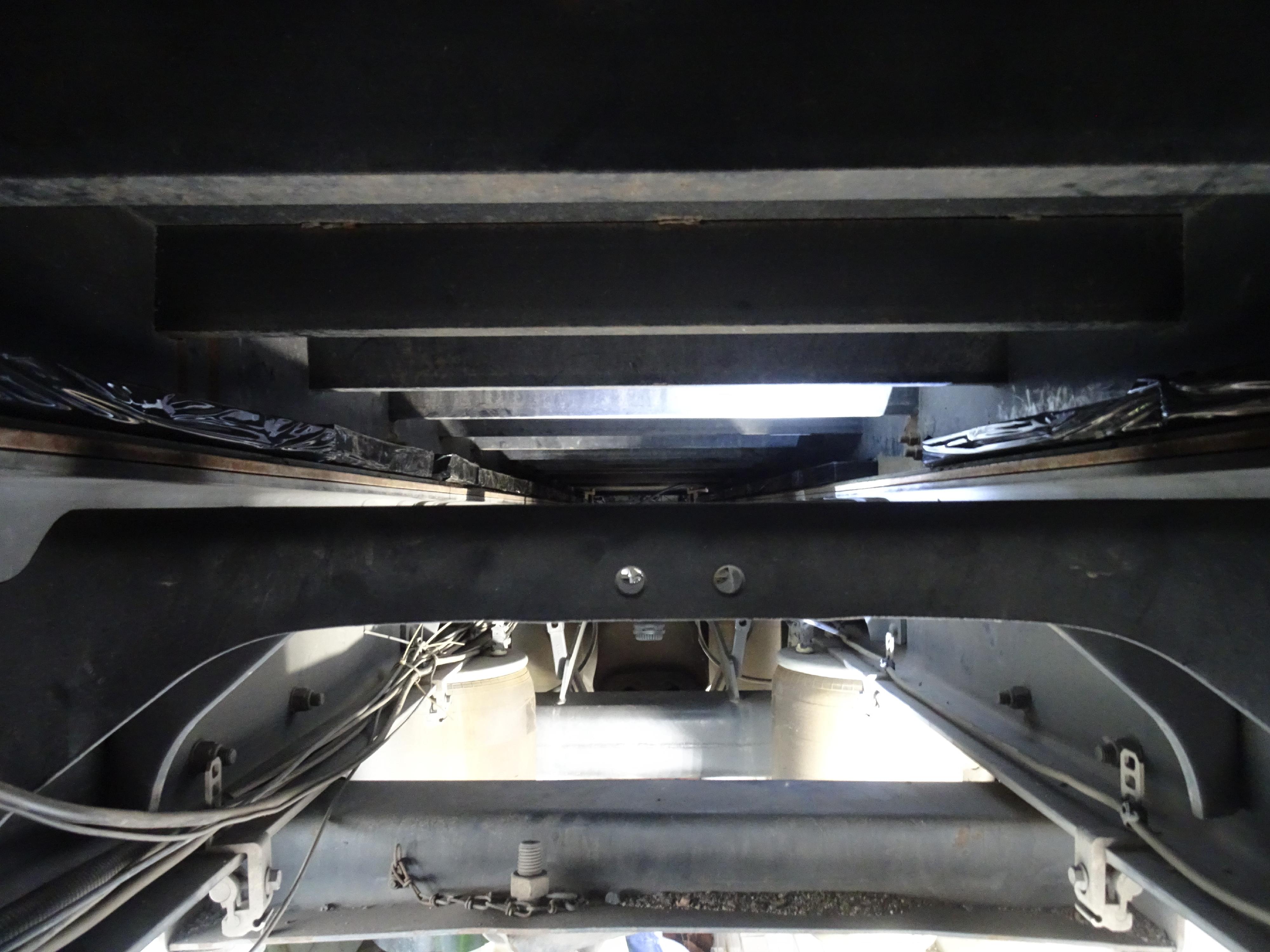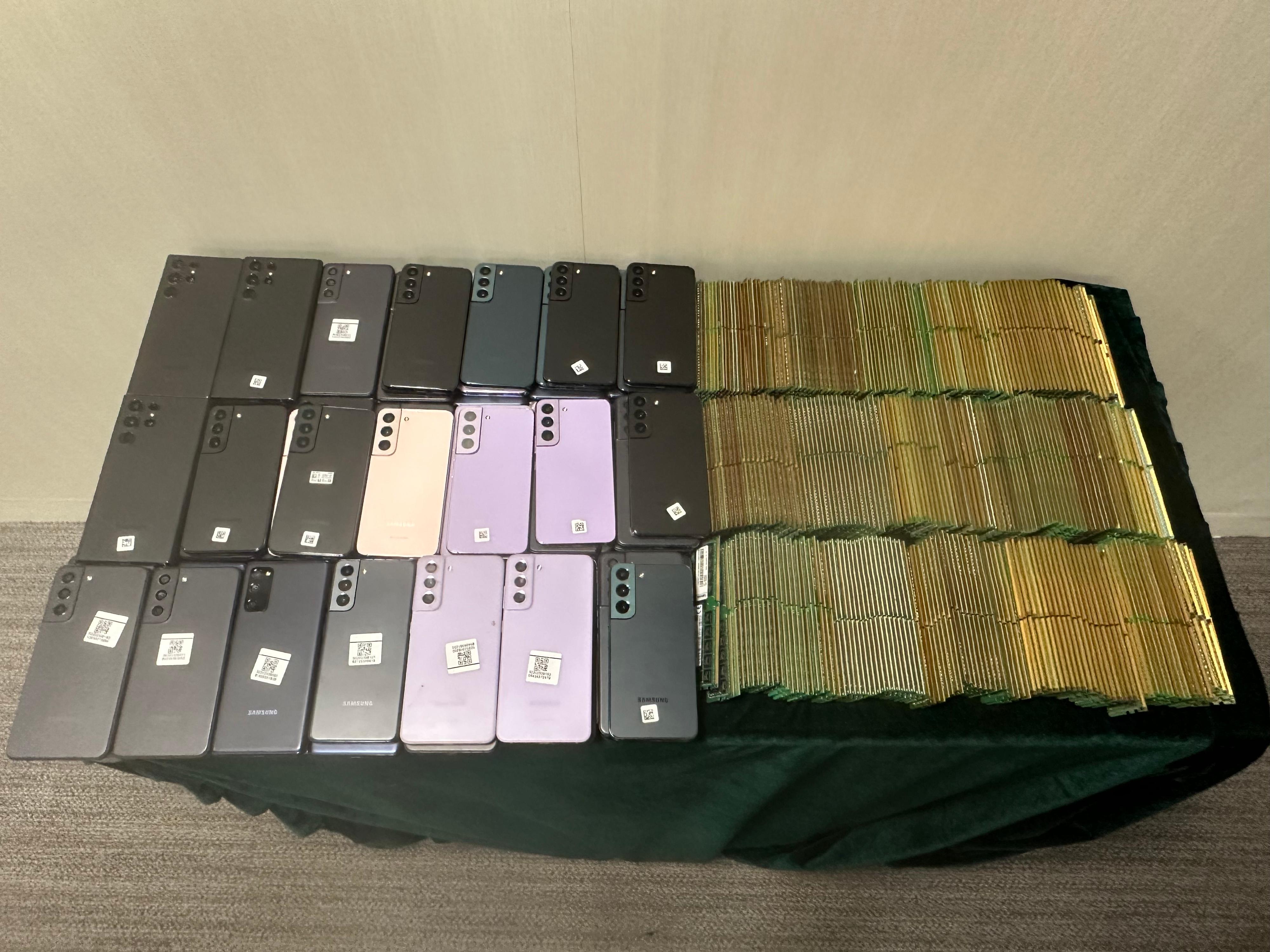Speech by SCS at VTC Honorary Fellowship Conferment Ceremony (English only)
Following is the speech by the Secretary for the Civil Service, Mrs Ingrid Yeung, at the VTC Honorary Fellowship Conferment Ceremony today (October 17):
Tony (Chairman of the Vocational Training Council (VTC), Mr Tony Tai), Donald (Executive Director of the VTC, Mr Donald Tong), Honorary Fellows, ladies and gentlemen,
Good afternoon.
It is my great pleasure to join you today for this year's Vocational Training Council Honorary Fellowship Conferment Ceremony.
First, I would like to congratulate the 2023 Honorary Fellows. The VTC Honorary Fellowship is the highest recognition of individuals' significant contribution to VTC, the development of VPET (Vocational and Professional Education and Training) or the community of Hong Kong. The four Honorary Fellows this year have provided staunch support to VTC and, in different ways, have contributed to the development of VPET. All of them have also contributed to the community by serving on government advisory boards and committees, through community services and by taking an active part in advancing the development of their respective professions and industries. Their deeds, successes and contributions tick all the boxes of role models for our students.
Throughout the decades, it has been VTC's mission to provide a valued choice to school leavers and working adults to acquire the value, knowledge and skills for lifelong learning and enhanced employability and, at the same time, provide valued support to industries for their manpower development.
What is commendable is that VTC does not only seek to provide skills to students and skilled hands to industries, it is there to help students to acquire values, knowledge and skills for lifelong learning which in turn helps the sustainability of our industries. In other words, VTC seeks to shape in their students a mindset for lifelong learning, teaches them to treasure and to make best use of learning opportunities and, in so doing, provide industries with a workforce that can improve with the times.
A mindset for lifelong learning is of utmost importance for our workforce. The world has seen new possibilities brought about by technological advancement that the wildest imagination in the past could not conjure up. The only way to keep up, keep afloat and keep employable is to keep learning. The readiness and ability to learn new skills is more important than the new skills themselves.
For employers, it must be realised that employees' aspirations and expectations have undergone changes. They are now focusing more on opportunities for learning new skills and the room for gaining new experience, exposure and personal growth that a job can offer, and not just the remuneration package. It is thus important for employers to spare resources and effort on the provision of useful training for their staff, not only to enable the company to remain competitive, but also to retain the staff they value.
The Government, as the biggest employer in Hong Kong, is keenly aware of the importance of providing civil servants training to enable them to remain forward looking, visionary as well as innovative.
To this end, our Civil Service College was established in 2021. Since then, the College has strived to enhance civil service training on all fronts and has put in place various new training programmes.
To cite an example, the College has revamped the induction training for new recruits. While the department to which a new recruit belongs will provide training in the relevant area of work, the Civil Service College provides an introduction to what is crucially needed to make a good civil servant: an understanding of the constitutional order established by the nation's Constitution and the Basic Law, the responsibility of every civil servant to safeguard national security, the civil service's core values and the public service culture.
For middle-ranking and senior civil servants, we have national study programmes run by prestigious Mainland universities that emphasise classroom learning as much as visits to gain first-hand knowledge of the latest development of different parts of the country.
For more senior civil servants, we are grateful to have the support of the Office of the Commissioner of the Ministry of Foreign Affairs in the Hong Kong SAR to arrange talks on foreign affairs delivered by senior officials of the Ministry to keep our officers abreast of developments on the international scene. Another highlight is a two-year Master Degree in Public Policy jointly organised by the Civil Service College with the Peking University. The participating officers have to spend the first year in full-time study in Beijing. It is a considerable investment by the Government and by the officers themselves, but it is a worthy investment that broadens the horizon of our future leaders to prepare them for the challenges of a fast-changing world.
These are only a few examples. In the long run, we aim to develop a training framework for all major grades of the civil service. Certainly it takes time and a lot of effort, especially when manpower is still tight and very often priority has to be given to work that have some urgency, but the Government is determined to achieve this goal.
Finally, I am happy to let you know that the project of the construction of the Civil Service College building, part of a greater composite development project in Kwun Tong, is proceeding smoothly. We are grateful to the Kwun Tong Shine Skills Centre, a member of the VTC, for relocating temporarily to Kowloon Tong to enable the composite development to take place. The College will be the neighbour of the future redeveloped Shine Skills Centre and will serve as a lifelong learning hub for serving and retired civil servants.
Before I joined the Civil Service Bureau, I was with the Education Bureau and valued very much the Government's partnership with VTC to provide VPET to enable students to realise their full potential. As head of the Civil Service Bureau today, I hope to see more VTC graduates joining the civil service in the future, and I can promise VTC graduates that a career in the civil service, with not only challenging work but ample learning opportunities at all levels, would be fulfilling, satisfying and a source of pride as one devotes oneself to the betterment of the society.
My congratulations to this year's Honorary Fellows again and I look forward to seeing VTC grow from strength to strength. May I also take this opportunity to mention a date in the near future: December 10, which is the voting day of the District Council Election. The nomination period of the election begins today. Please take an active interest in the candidates, in their election platforms, and cast your vote on December 10 to create a better future for the district in which you live.
Thank you.




